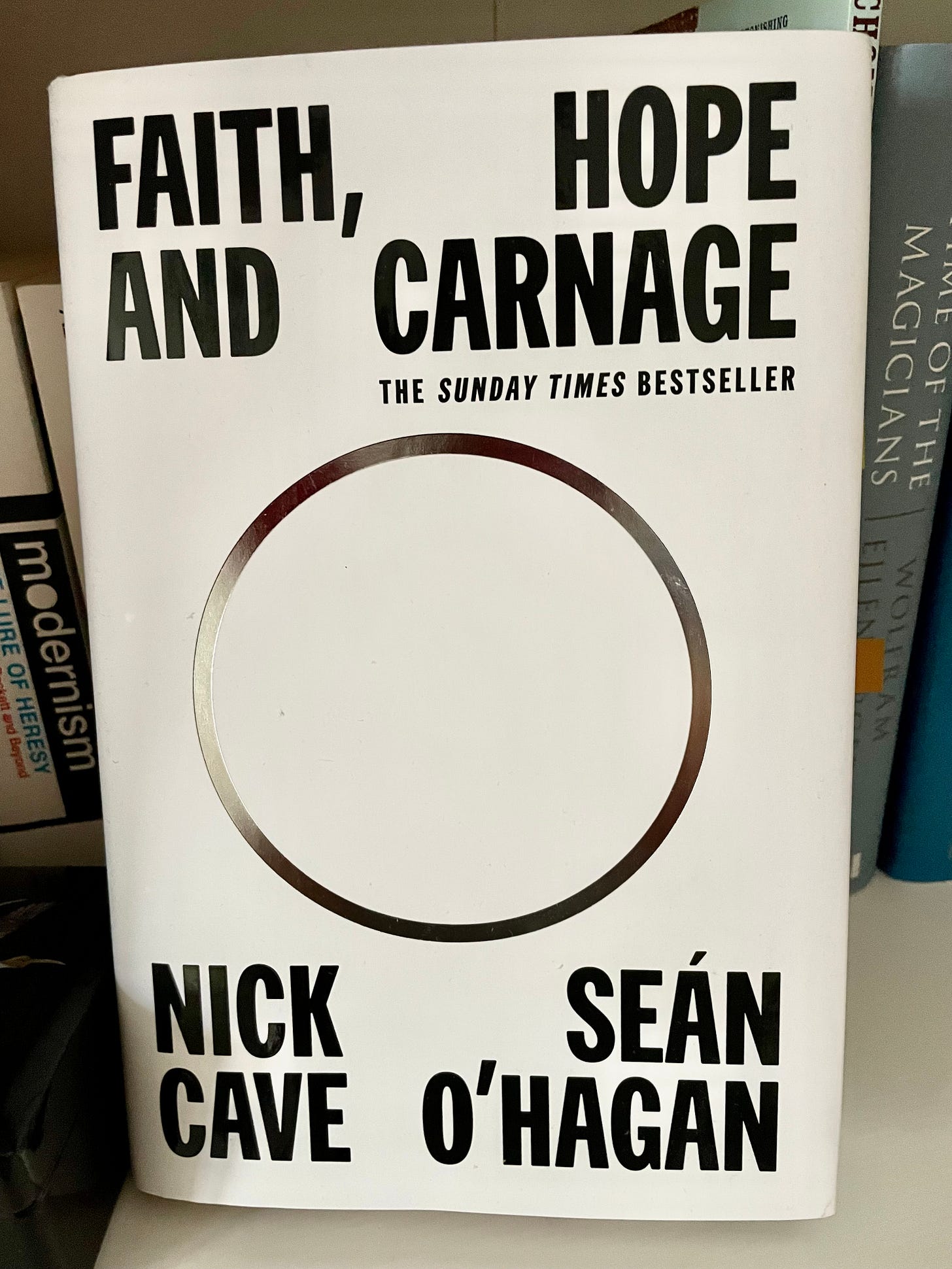“Faith, Hope and Carnage” is a unique collaboration in the form of a series of conversations between Nick Cave and Seán O’Hagan about Cave’s life, work, and beliefs. Through these intimate discussions, the reader is invited to explore a variety of themes, including love, creativity, grief, freedom, and transformation. It delves into Cave’s personal life, relationships, music career, drug addiction, and the death of his son, providing a more intimate understanding of Nick Cave as an artist and as a person.
The book does not follow the traditional interview style; it is rather a transcription of conversations between the two men, and as such it is more informal and intimate, allowing for a deeper exploration of the topics discussed. Some of the conversations are deeply harrowing, sometimes even agonizing, offering a raw and unfiltered look into Cave’s experiences and emotions.
Nick Cave shares insights into music and the artists and genres that influenced his music and shaped his unique sound and style. He delves into his songwriting process, discussing how he finds inspiration and crafts his lyrics and melodies and reflects on the evolution of his music throughout his career, discussing how his sound and artistic vision have changed over time. Given the emotional depth of his music, Cave also explores the connection between music and emotions and discusses how he uses music as a means of expressing and processing his own feelings, and how his music has resonated with people on a personal and emotional level.
One of the most poignant and heartbreaking aspects of “Faith, Hope and Carnage” is Cave’s exploration of grief. The death of his son has had a profound impact on his life, and he delves into the concept of God and what it means for him to be a religious person. Cave’s perspective on grief is deeply personal and emotionally intense. Through the conversations with O’Hagan, he expresses his thoughts and experiences on grief and loss, offering a raw and unflinching look into the depths of his pain.
It made me a religious person in the sense that I felt on a profound level a kind of deep inclusion in the human predicament, really and an understanding of our vulnerability and the sense that, as individuals, we are, each of us, imperilled.
Cave sheds light on his long-standing friendship and artistic collaboration with Warren Ellis. Their partnership spans nearly three decades, and their professional codependent collaboration is deeply rooted in their friendship. Cave discusses the influence Ellis has had in shaping his artistic vision and the creative synergy they share.
Yes there is something beautiful about walking into a room where everyone knows what they are doing. Personally, I have found that a disciplined and structured workplace encourages a certain kind of free-range creativity that chaos is just not conclusive to. It actually allows for a kind of disarray of the creative mind- as I said a beautiful freedom.
Cave also speaks of his deep connection with his wife Susie and how she has influenced every aspect of his life, including his music. Writing about Susie, he says, is like “trying to break a code that is constantly rearranging itself” and that he has tried to capture her in many of his songs. It is easy to understand, through his words, the transformational power of love and its impact on creativity.
“Faith, Hope and Carnage” is a personal and intense journey into the mind of one of the most influential musicians of our time. It’s a testament to the power of music, the depths of human emotion, and the transformative nature of love. It is not an easy read, as it delves into the depths of grief, loss, and the complexities of the human experience. For those who persist, however, it is ultimately a rewarding experience.




